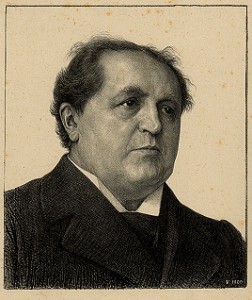


In the latest edition of First Things, Acton’s Director of Research Sam Gregg discusses how adherence to Catholic social teaching does not require a limited economic viewpoint. In fact, such a limited vision, or blindness as Gregg states in the article’s title, is what holds back development in many parts of the world. (Please note that the full article is available by subscription only, but is excerpted here.)
Gregg recounts how the aggressive or “Tiger” economies of East Asia have resulted in positive changes, despite problems such as endemic corruption.
To be sure, not everything is sweetness and light in East Asia. Memories of the region’s severe financial meltdown in 1997 linger. More ominously, China’s mammoth banking system is a hopelessly run extension of its government. The same banks are heavily and rather incestuously invested in propping up thousands of underperforming Chinese state-owned enterprises. That’s a recipe for trouble. Corruption remains an endemic problem, most notably in China and India, which rank an unimpressive 96 and 134, respectively, in the World Bank’s 2014 Ease ofDoing BusinessIndex, while Singapore, Hong Kong, South Korea, Malaysia, and Thailand are ranked in the top twenty.
Nonetheless, the overall benefits of greater economic liberty in East Asia can’t be denied. In 2010, the Asian Development Bank reported that per capita GDP increased 6 percent each year in developing Asian countries between 1990 and 2008. Christians should especially consider how this growth has contributed to the reduction of poverty. The ADB estimated that between 1990 and 2005 approximately 850 million people escaped absolute poverty. That is an astonishing figure.
Gregg goes on to say that (according to Michael Novak circa 1996), the death of socialism is a plausible idea. However, much of the world, especially in Western Europe and Latin America, decided to ignore this plausibility. This has had dire consequences. He uses France’s current situation to illustrate:
Nowhere in recent Catholic social teaching can you find allusions to how many of the hundreds of thousands of regional, national, and E.U. regulations designed to “protect” people’s jobs have increased unemployment. A 2011 World Bank report on Europe’s economic situation pointed to cross-continental evidence suggesting that the prevalence of high labor-force costs and regulations in countries like Belgium, Italy, and France helps explain why so many of these countries’ otherwise successful businesses decline to increase their workforces.
According to France’s 3,400-page Code du Travail, for example, pany that exceeds forty-nine employees is legally obliged to establish no fewer than three worker councils. If such businesses decide they need to let go of some employees, they’re required to present a reorganization plan to all three councils. Is it any wonder many French businesses don’t hire more employees?
Gregg’s questions here are important. How is a business, let alone an economy, supposed to grow in such a stifling atmosphere?
This type of economic dysfunction may very well be at its worst in Argentina.
There are countries which are rich,” Peru’s Mario Vargas Llosa once observed, “and countries which are poor. And there are poor countries which are growing rich. And then there is Argentina.” In 1900, Argentina ranked among the world’s ten wealthiest nations in terms of e per capita. Blessed with immense natural resources and large inflows of foreign capital that helped it develop infrastructure faster than other South American countries, Argentina attracted hundreds of thousands of European immigrants, including a young Mario Bergoglio from Piedmont. Argentina also enjoyed stable governance structures. Taken together, these factors enabled it to enter international markets as petitive provider of agricultural products.
So why does Argentina find itself in a rather different economic position in 2014? Until the 1940s, Argentina was only slightly behind Australia in terms of GDP growth per capita. Everything changed, however, once Argentina’s institutional structure began corroding from within, especially following Colonel Juan Perón’s rise to power. Even before ing president in 1946, Perón employed the populist rhetoric later associated with Hugo Chávez. But in terms of economic policy, as Mauricio Roja illustrates in The Sorrows of Carmencita (2002), his instructive study of Argentina’s economic rise and fall, Perón followed a hard corporatist agenda that contributed to the internal problems that plague Argentina’s economy today.
Near the close of Gregg’s discussion, he frames another important question, “Has Catholic social teaching taken heed of what the decades-long slouch of Argentina and other nations toward economic decrepitude tells us about wealth and poverty?” Gregg is not calling promise or change in Catholic social teaching. What he is calling for is a closer examination, a deeper reading, a more nuanced approach of that teaching alongside economic approaches that allow more people to be lifted from poverty. Catholic social teaching is intended to create human flourishing; so is sound economic policy. Gregg is calling for a removal of economic blind spots.
Read “Correcting Catholic Blindness” at First Things.









